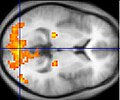Philosophy of mind
Philosophy of mind is a branch of philosophy that studies the nature of the mind, mental events, mental functions, consciousness, and their relationship to the physical body, notably the brain. The mind-body problem, which encompasses the relationship between mind and matter, is a central issue in the philosophy of mind, with a rich history dating back to pre-Socratic times.
Overview[edit]
The philosophy of mind is concerned with fundamental questions about the nature of mind and mental states, and how they interact with the physical world. One of the key debates in this field is between dualism and physicalism. Dualism posits that the mind and body are fundamentally different in nature, typically arguing that the mind is non-physical. In contrast, physicalism asserts that mental states are ultimately physical in nature.
Key Concepts[edit]
Dualism[edit]
Dualism is the view that the mind and the physical world are fundamentally different kinds of things. René Descartes is one of the most prominent advocates of dualism, arguing for a strict separation between mind (res cogitans) and matter (res extensa).
Physicalism[edit]
Physicalism, on the other hand, argues that everything that exists is physical, and thus, mental processes can be explained in terms of physical processes in the brain. This view is supported by developments in neuroscience and psychology, which increasingly show correlations between brain activity and mental states.
Consciousness[edit]
Consciousness is perhaps the most perplexing aspect of the mind, with debates focusing on its nature, origins, and whether it can be fully explained by physical processes. The hard problem of consciousness, a term coined by David Chalmers, refers to the difficulty of explaining why and how we have qualia or subjective experiences.
Intentionality[edit]
Intentionality is the capacity of the mind to be about, to represent, or to stand for, things, properties, or states of affairs. The concept of intentionality is central to understanding mental states' directedness towards an object or state of affairs.
Free Will[edit]
The question of free will involves whether individuals have control over their actions. This issue intersects with the philosophy of mind through the exploration of how mental states influence actions and whether deterministic or indeterministic views of the universe impact the concept of free will.
Mind-Body Problem[edit]
The mind-body problem is a central issue in the philosophy of mind, questioning how mental states, which are subjective and qualitative, can relate to the physical body and brain, which are objective and quantitative. Various solutions have been proposed, ranging from dualistic interactions to physicalist explanations.
Contemporary Approaches[edit]
Contemporary philosophy of mind includes various approaches, such as functionalism, which conceptualizes mental states in terms of their functional roles rather than their internal constitution. Other notable approaches include identity theory, panpsychism, and emergentism.
Conclusion[edit]
The philosophy of mind remains a vibrant field of inquiry, with ongoing debates about the nature of mind, consciousness, and their relation to the physical world. As scientific understanding of the brain advances, new insights are expected to contribute to these longstanding philosophical discussions.

This article is a philosophy-related stub. You can help WikiMD by expanding it!
-
Descartes' mind and body
-
Portrait of René Descartes by Frans Hals
-
Dualism causation views
-
Anomalous Monism
-
John Searle in 2002
-
Phrenology
-
Functional magnetic resonance imaging
Ad. Transform your life with W8MD's Budget GLP-1 injections from $49.99


W8MD offers a medical weight loss program to lose weight in Philadelphia. Our physician-supervised medical weight loss provides:
- Weight loss injections in NYC (generic and brand names):
- Zepbound / Mounjaro, Wegovy / Ozempic, Saxenda
- Most insurances accepted or discounted self-pay rates. We will obtain insurance prior authorizations if needed.
- Generic GLP1 weight loss injections from $49.99 for the starting dose of Semaglutide and $65.00 for Tirzepatide.
- Also offer prescription weight loss medications including Phentermine, Qsymia, Diethylpropion, Contrave etc.
NYC weight loss doctor appointmentsNYC weight loss doctor appointments
Start your NYC weight loss journey today at our NYC medical weight loss and Philadelphia medical weight loss clinics.
- Call 718-946-5500 to lose weight in NYC or for medical weight loss in Philadelphia 215-676-2334.
- Tags:NYC medical weight loss, Philadelphia lose weight Zepbound NYC, Budget GLP1 weight loss injections, Wegovy Philadelphia, Wegovy NYC, Philadelphia medical weight loss, Brookly weight loss and Wegovy NYC
|
WikiMD's Wellness Encyclopedia |
| Let Food Be Thy Medicine Medicine Thy Food - Hippocrates |
Medical Disclaimer: WikiMD is not a substitute for professional medical advice. The information on WikiMD is provided as an information resource only, may be incorrect, outdated or misleading, and is not to be used or relied on for any diagnostic or treatment purposes. Please consult your health care provider before making any healthcare decisions or for guidance about a specific medical condition. WikiMD expressly disclaims responsibility, and shall have no liability, for any damages, loss, injury, or liability whatsoever suffered as a result of your reliance on the information contained in this site. By visiting this site you agree to the foregoing terms and conditions, which may from time to time be changed or supplemented by WikiMD. If you do not agree to the foregoing terms and conditions, you should not enter or use this site. See full disclaimer.
Credits:Most images are courtesy of Wikimedia commons, and templates, categories Wikipedia, licensed under CC BY SA or similar.
Translate this page: - East Asian
中文,
日本,
한국어,
South Asian
हिन्दी,
தமிழ்,
తెలుగు,
Urdu,
ಕನ್ನಡ,
Southeast Asian
Indonesian,
Vietnamese,
Thai,
မြန်မာဘာသာ,
বাংলা
European
español,
Deutsch,
français,
Greek,
português do Brasil,
polski,
română,
русский,
Nederlands,
norsk,
svenska,
suomi,
Italian
Middle Eastern & African
عربى,
Turkish,
Persian,
Hebrew,
Afrikaans,
isiZulu,
Kiswahili,
Other
Bulgarian,
Hungarian,
Czech,
Swedish,
മലയാളം,
मराठी,
ਪੰਜਾਬੀ,
ગુજરાતી,
Portuguese,
Ukrainian





